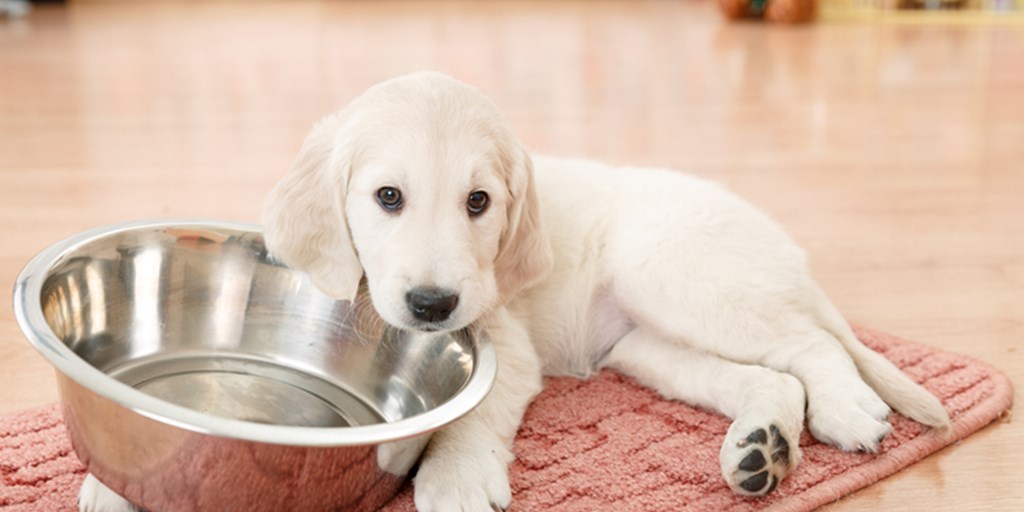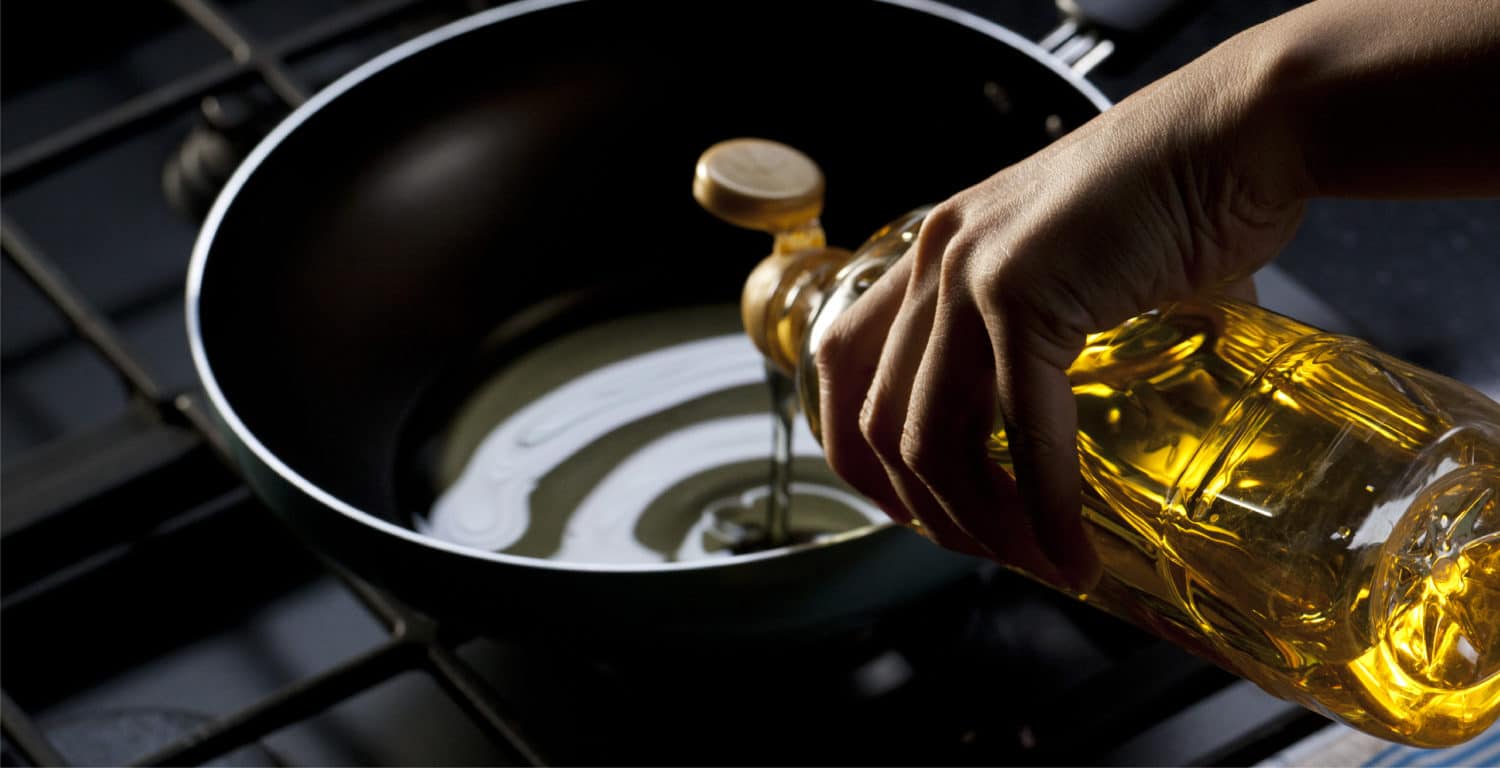Many dog owners wonder if it’s okay to feed their adult dogs puppy food. Puppy foods are specifically formulated to support growth and development in young dogs. But is it safe or healthy for adult dogs to eat puppy chow? In this article, we’ll explore whether adult dogs can eat puppy food, the differences between the two diets, and when it may or may not be appropriate.

Key Differences Between Puppy and Adult Dog Food
Puppy and adult dog foods are designed to meet different nutritional needs. Here are some of the key differences:
Nutrient Levels
- Protein – Puppy foods have higher protein levels to promote lean muscle growth. Adult dog food protein is adequate for maintenance. Too much protein long-term can cause kidney strain.
- Calories – Puppy foods also have more calories and fat to meet growing dogs’ energy needs. Adult dog food has fewer calories for less active adults.
- Calcium/Phosphorus – These minerals are crucial for proper bone development early on. Puppy foods have calibrated levels. Too much cal/phos in adults can lead to issues.
- DHA – Puppy diets include DHA, an omega-3 fatty acid for brain and vision development. Adults have no need for added DHA.
Kibble Size and Texture
- Puppy food often has smaller, softer kibble that’s easier to chew and digest. Adult kibbles are larger and harder.
- Some puppy foods are formulated as wet foods or mushy gruels that are gentler for weaning pups.
So puppy and adult dog foods are tailored to meet different life stage requirements. Feeding the wrong one at the wrong time could lead to issues.
Is It Okay for Adult Dogs to Eat Puppy Food Occasionally?
What happens if an adult dog sneakily snacks on the puppy’s food? The good news is that it’s generally fine for adult dogs to eat puppy food occasionally as a treat or if they accidentally eat some.
A few bites of puppy food here and there won’t cause major issues. The slightly higher fat and calories might cause some mild digestive upset like soft stool. But most healthy adult dogs tolerate puppy food in small amountswell.
Keep in mind that this doesn’t mean puppy food should become a regular part of the adult dog’s diet. The differences in protein, fat, and minerals aren’t ideal for long-term feeding in adult dogs, who have different nutritional requirements.
While the odd taste is harmless, puppy foods shouldn’t be fed to adult dogs as their sole diet. There are better nutritional matches for adult canines.
Potential Issues with Feeding Puppy Food to Adult Dogs Long-Term
Feeding puppy food to an adult dog regularly or as a staple diet is not recommended. Here are some potential issues with feeding puppy food long-term to grown dogs:
- Weight gain or obesity – The higher fat and calories could lead to excess weight gain in inactive adult dogs. Obesity is dangerous for dogs.
- Nutrient imbalance – Excess minerals and proteins can put strain on adult dogs’ bodies over time, especially the kidneys.
- High energy – Some active adult dogs may get overly energetic from the extra calories and become destructive.
- Loose stool – Too much fat or bone-building minerals may cause loose stool or diarrhea in sensitive dogs.
- Picky eating – Dogs may resist their regular adult food after getting used to the puppy food taste and texture.
While it varies by the formula, feeding puppy chow as the sole diet can take its toll on adult dogs. An occasional taste is fine, but it shouldn’t become a daily feeding practice.
When Can Adult Dogs Switch to Puppy Food?
For healthy adult dogs, there’s no benefit to switching to or adding puppy food into their diet. The nutrition is tailored for growing puppies.
However, in some cases, vets may recommend transitioning an adult dog to a puppy food formula:
- Poor quality adult food – If the current food is low quality, puppy food may be an upgrade. But a high quality adult formula is best.
- Underweight dogs – For malnourished or underweight adults needing to gain weight, the extra calories in puppy food can help. This should be temporary.
- Picky eaters – Fussy eaters who resist their normal food may have more interest in puppy food varieties. This technique should only be used short term.
- Pregnant or nursing dogs – The extra nutrition supports pregnant/nursing mothers and their puppies’ needs. They can transition back after weaning.
Unless a vet recommends it, most healthy adult dogs can be adequately nourished by high quality adult dog foods appropriate for their life stage. Puppy foods are not optimal for long-term adult dog feeding in most cases.
Signs It’s Time to Switch From Puppy to Adult Food
Puppy foods are perfect for rapidly growing young dogs under 1 year old. But at a certain point, the puppy will need to transition to adult dog food formulated for their changing needs. Here are some signs it’s time to switch your puppy:
- Slowed growth rate – Around 9-12 months old, puppy growth and development slows. This signals lower nutritional needs.
- Ideal adult size – When your puppy nears its expected adult size, calories and minerals can be reduced by switching foods.
- Maturity – Behavioral maturity around 1 year old means your puppy is psychologically an adult dog.
- Adult coat – A full, smooth adult coat replacing the soft puppy fur indicates physical maturity.
- Vet recommendation – Your veterinarian can best assess your puppy’s development and recommend the optimal transition timing.
With your vet’s guidance, switching at the right time ensures your maturing pup gets the right nutrition. Puppyhood flies by, so enjoy it while it lasts!
Feeding Guidelines for Adult Dogs Eating Puppy Food
If an adult dog ends up eating puppy food for an extended time, there are ways to feed it more safely:
- Transition gradually – Mix more and more puppy food over 2-3 weeks to avoid GI upset.
- Reduce portions – Feed less puppy kibble by volume than adult food to account for higher calories.
- Limit high-fat varieties – Pick lower-fat puppy foods and avoid wet or canned options.
- Supplement with adult food – Adding some adult kibble creates a more balanced mix.
- Exercise regularly – Give active playtime and walks to avoid weight gain from extra calories.
- Monitor weight – Weigh your dog weekly and adjust portions to maintain an ideal weight.
While puppy food isn’t optimal for adult dogs long-term, these tips help mitigate risks if an adult can’t avoid eating it temporarily.
Puppy Food vs. All Life Stages Foods
Some dog owners wonder if “all life stages” dog foods are a good middle ground between puppy and adult formulas. These aim to meet nutritional needs for both puppies and adult dogs.
The problem is all life stages foods still contain higher calcium for growing dogs, which can be detrimental to adults. And nutrient levels aren’t tailored for a puppy’s unique needs.
For that reason, feeding an actual puppy formula is best for puppies, while real adult dog foods are optimal for adult dogs in most cases. All life stages foods are generally not the best sole choice for either group.
Conclusion
While the occasional taste of puppy food is fine, it’s best fed only to puppies under 1 year old. Adult dogs have different nutritional requirements best met by dog foods designed specifically for their life stage.
For adult dogs eating puppy food often, be sure to monitor their weight, health, and stool closely. Any issues may indicate it’s time to transition back to a high quality adult dog diet. Check with your vet for personalized feeding guidance.
Frequently Asked Questions
Q: Can I feed my adult dog puppy food to help them gain weight?
A: Yes, the higher fat and calories may help an underweight dog gain weight. But speak to your vet, as an underlying medical issue may need to be addressed. Make it temporary until the ideal weight is reached.
Q: Is it okay to leave puppy and adult dogs on the same feeding schedule?
A: Yes, you can feed puppy and adult dogs together on the same schedule. Just be sure each dog eats the appropriate food for their age. Supervise mealtimes if needed.
Q: Can I mix puppy and adult dog food together?
A: We don’t recommend mixing puppy and adult foods together long-term, as nutrient levels aren’t optimized. But mixing during the transition can help avoid GI upset.
Q: My adult dog is active. Can he eat puppy food?
A: Active adult dogs have higher caloric needs.


